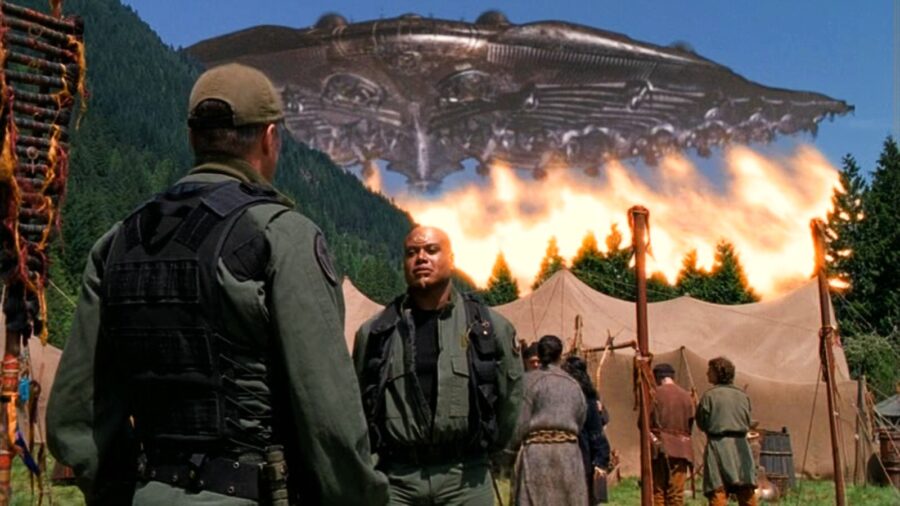Are New Stargate Shows In Trouble?
The future of the Stargate franchise suddenly seems to be in trouble, and an enormously controversial business might be involved.
This article is more than 2 years old

The future of the Stargate franchise suddenly seems to be in trouble. The franchise has been around since the 1994 Roland Emmerich-Dean Devlin film of the same name kicked things off, and an entire universe has been built up around the simple concept of aliens having intergalactic teleportation technology which they use to enslave ancient Egyptians. While it is a timeless and fundamental story, it looks like there is a good chance we might not be getting any more Stargate shows (at least for a while). The reason? A possible lawsuit from the Federal Trade Commission.
Many Stargate fans were hopeful that more new series would be on the way soon. Showrunners have talked about their ideas for new projects. And with Amazon acquiring MGM, the studio that owns the franchise, it would seem like the studio would want to make more projects soon. However, an inside source for The Information claims that the Federal Trade Commission is preparing to challenge Amazon’s purchase of MGM. If that happens, this could put a major hamper on fans’ hopes for new Stargate shows while the studios work this out.
While it may seem odd that the future development of the third most popular Star-based science fiction franchise is under threat by a United States governmental agency, we can break it down a bit for you. For context, in May of 2021, streaming giant/futuristic megacorporation Amazon announced a plan to purchase the legendary Hollywood studio Metro-Goldwyn-Mayer, the venerable production studio that owns properties like Legally Blonde, the Rocky franchise, and naturally, Stargate. The main purpose of the FTC is to enforce anti-trust laws and ensure consumer protection in the USA; in this case, the FTC is determining whether the merging of two massive production companies like Amazon Prime and MGM would be against the best interests of consumers. In particular, the worry is that by allowing enormously powerful companies like Amazon to expand horizontally and acquire (technically, merge) its competitors, they limit the ability of subscribers to have access to anything not-Amazon related. Essentially, it’s like the board game Monopoly, but instead of hotels, it’s Stargate.

In all fairness, this is by no means a certain thing (or even sure to affect future Stargate shows). The Department of Justice has already approved the Amazon-MGM merger, and the FTC has yet to determine if they will file a lawsuit to prevent it. Even if they do, it then becomes a complex legal issue of whether the companies cannot. While opinions about the ever-increasing dominance of Amazon over literally every aspect of global business vary wildly, it is simply too complicated of an issue to be simply resolved.
But even without the looming threat of the FTC over the Amazon-MGM merger, the future of Stargate has been iffy in the last several years. Original director and co-creator Roland Emmerich has indicated that he has pretty much washed his hands of the franchise, and Dean Devlin is working with another Stargate veteran to develop a new science fiction series for the SyFy network. Since 1994, the franchise has spun-off multiple long-running shows, most notably Stargate SG-1 starring Richard Dean Anderson (taking over for the movie’s Kurt Russell). The most recent attempt to utilize the property, Stargate Origins, was released only online for a brief 10-episode run and gained little traction with pop culture. And while longtime producer/SG-1 co-creator Brad Wright has announced hopes to continue to series in some way, it seems like there are going to be a lot more lawyers involved before we get anything substantive.











